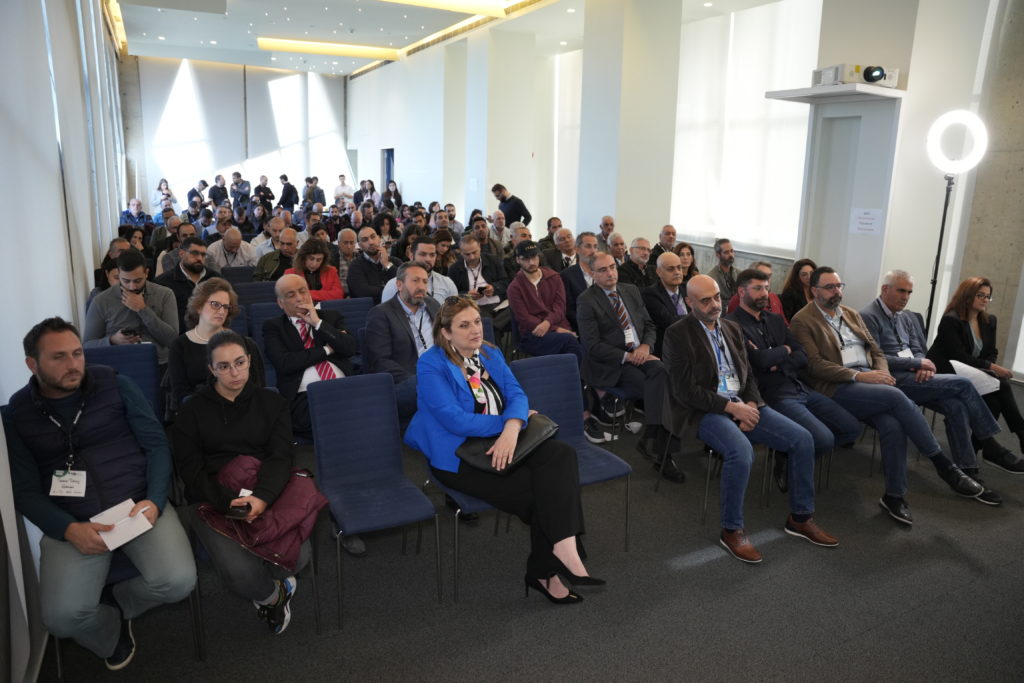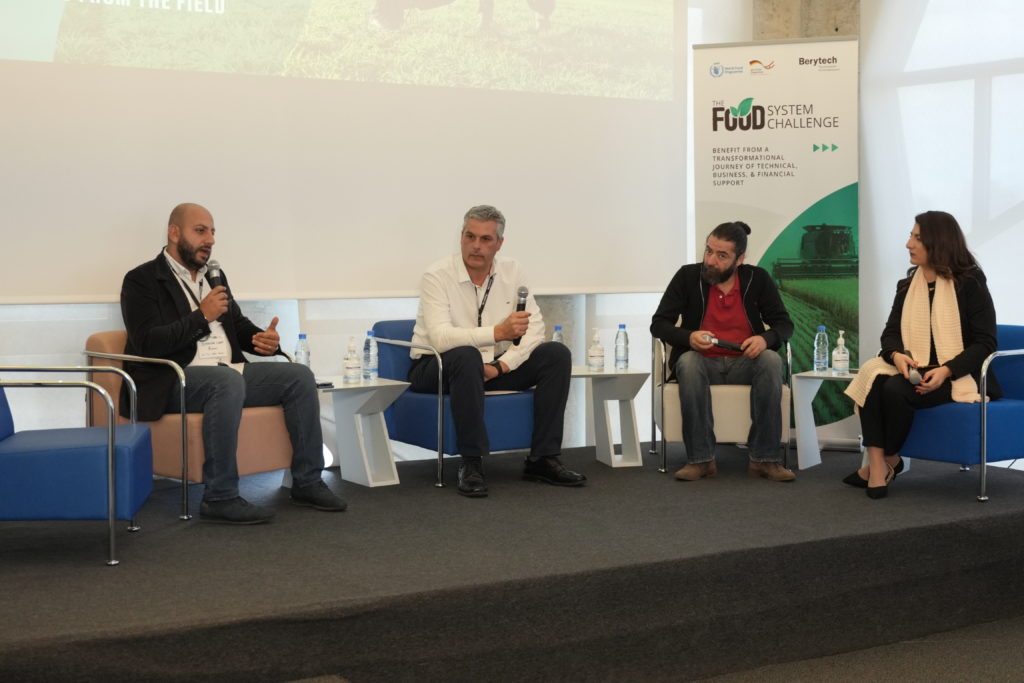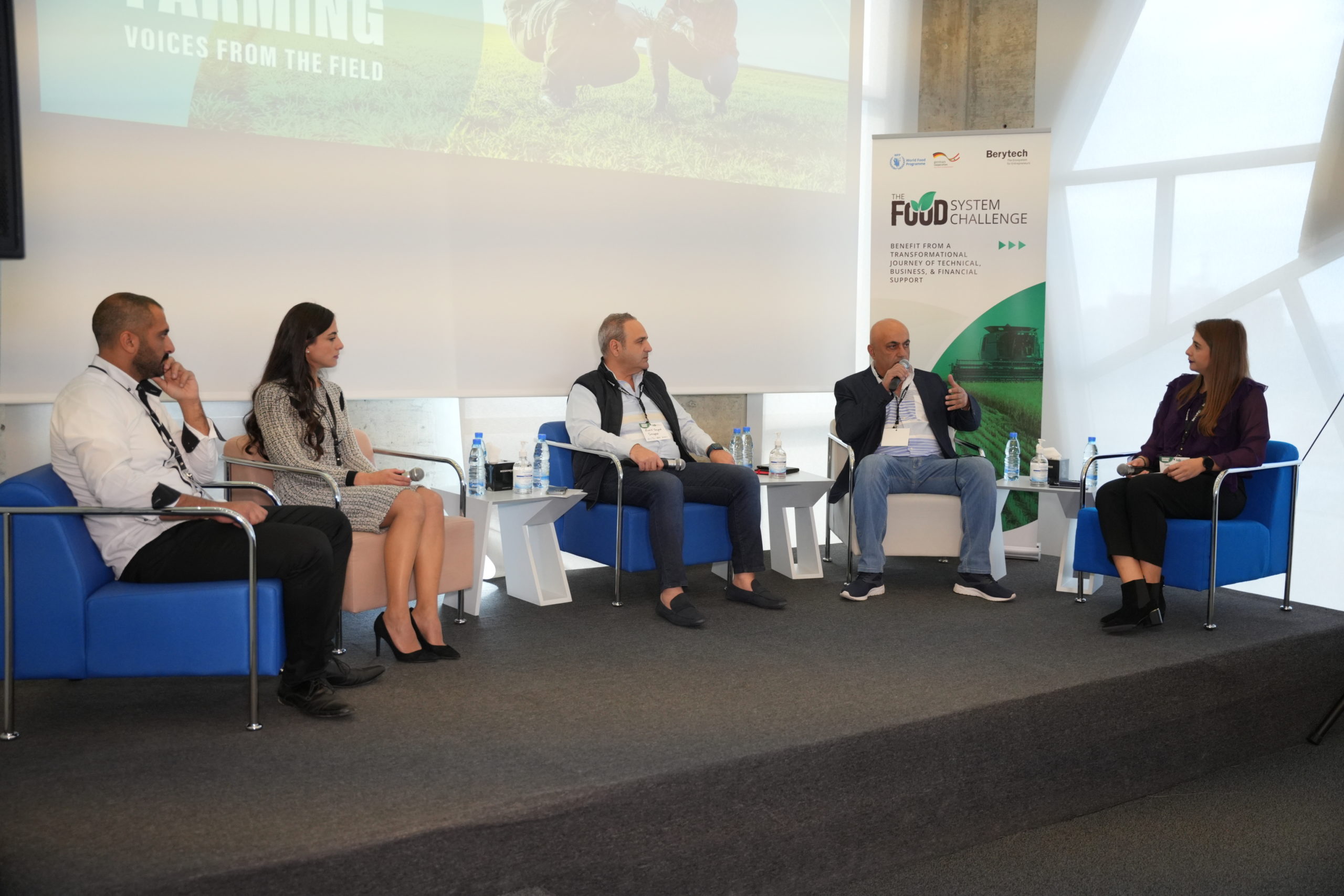Berytech, in collaboration with the QOOT Cluster, organized the ‘Status of Contract Farming in Lebanon: A Practical Discussion for a Renewed Paradigm’ to address the legislative, economic, sociocultural, and technical framework of contract farming practically and efficiently.
Governmental and para-governmental representatives, farmers representative groups, and local businesses shared their thoughts and discussed the problems confronting Lebanon’s farming sector and proposed solutions, assessing the status of contract farming in Lebanon.

The Role of Contract Farming in Lebanon
Held at the Bossa Nova Beirut Hotel, the conference started with a welcoming note from Berytech’s COO Ramy Boujawdeh, who discussed the event’s key objectives and outcomes, followed by an introductory speech by the World Food Program‘s head of programs, Ms. Michelle Iseminger, who shed the light on the severe challenges faced by farmers in Lebanon throughout the economic crisis, putting the country’s food security at risk, and expressed the WFP’s scope of work since 2012 in driving policy change and pushing for solutions to save Lebanon’s nutrition and food security.
“Contract farming is fundamental to help farmers discharge their production and reduce the level of exploitation since they are dealing with private companies that need products with precise specifications. WFP believes that the agricultural sector is an important part of the local economy in Lebanon and should be the responsibility of donors, international organizations, and government agencies,” said Mr. Jawad Boughanem, Resilience and Livelihood Officer at WFP Lebanon.
Mr. Nicholas Gholam, Rural Development Researcher, and Practitioner, discussed Contract Farming in theory and its different models, origins, and current practices in Lebanon, stakeholder matrix, and contract farming determinants.
A panel discussion, powered by QOOT Cluster and moderated by Rima Hijazi, an Agricultural Research Officer at Berytech, gathered owners of established businesses including Biomass, Dry and Raw, and Rim Mills. The panel discussed the significance of the quality, volume, criteria, and contract samples provided by businesses for them to benefit from contract farming.
Mr. Bachar Berro, Agriculture Technical Advisor for the USAID-funded Agriculture and Rural Empowerment (ARE) Activity, spoke about goods pricing modalities, referencing, and strategies within the contract.
Ms. Suha Hallab, Business Development Support and Investment Specialist at WE4F (Water and Energy for Food), also spoke about contract farming and developmental programmatic work, lessons learned, and opportunities for beneficiaries.
Soha Nasser, Agrifood Specialist at Berytech, moderated a second panel discussion with participation from Daher Foods, Ksara, and SNAgro, addressing the benefits of contract farming to farmers.
“Lebanese farmers are challenged by the absence of import and export regulations which must be submitted to international organizations to work closely with the government and drive policy changes. This will have a fruitful impact on the Lebanese agricultural sector, thereby advancing the Lebanese economy,” stated Ali Chouman from the Lebanese Farmers Syndicate.

Exploring Contract Farming
The conference was then followed by a round table discussion to explore contract farming and come up with recommendations.
Dr. Rodrigue Balaa, Chairman of the Department of Agriculture at the University of Balamand, moderated the roundtable, which began with an open panel discussion by the Ministry of Agriculture, the Directorate General of Cooperatives and the Ministry of Economy and Trade, discussing key challenges, market regulation, and the strategic role of each entity in promoting contract farming.
The floor was then open for International Governmental Organizations and local NGO representatives, and other stakeholder such as Chamber of Commerce, Industry and Agriculture – CCIAZ to discuss examples of previous experience with contract farming practices and methods of channeling funds in that scope.
The discussion focused on creating a favorable investment climate, developing regulation of direct transactions between farms and processing companies, developing grades, standards, and ways to incentivize cooperatives or farmers organizations to create linkages between farmers and companies, promoting competition, and exploring innovative ways to enforce contracts, with representatives from WFP, GIZ, FAO, Fair Trade Lebanon, Rene Mouawad Foundation, CCIAZ, John Paul II Foundation and Land O’ Lakes.
The Food System Challenge
The Food System Challenge is implemented by the World Food Programme (WFP) and Berytech through support from the German Federal Ministry of Economic Cooperation and Development (BMZ).
The program’s main outcomes are enhanced food security, a well-functioning local food system, enhanced efficiency and resilience of cooperatives and SMEs working across different streams of the food systems, and to increase employment opportunities, especially for women and vulnerable individuals.










